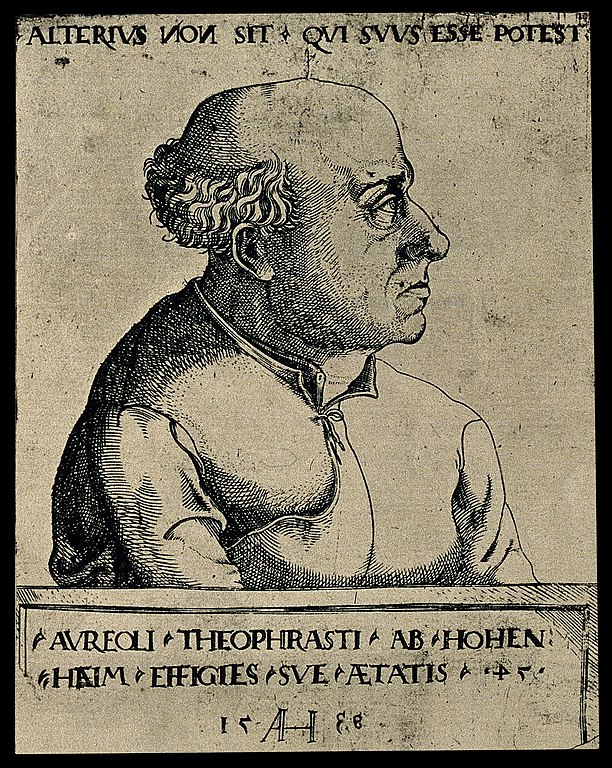Paracelsus
Paracelsus (/ˌpærəˈsɛlsəs/; c. 1493 – 24 September 1541), born Theophrastus von Hohenheim (full name Philippus Aureolus Theophrastus Bombastus von Hohenheim, was a Swiss physician, alchemist, lay theologian, and philosopher of the German Renaissance. He was a pioneer in several aspects of the "medical revolution" of the Renaissance, emphasizing the value of observation in combination with received wisdom. He is credited as the "father of toxicology". Paracelsianism is the early modern medical movement inspired by the study of his works.
Paracelsus also had a substantial impact as a prophet or diviner, his "Prognostications" was studied by Rosicrucians in the 1600s.
Philosophy
As a physician of the early 16th century, Paracelsus held a natural affinity with the Hermetic, Neoplatonic, and Pythagorean philosophies central to the Renaissance, a world-view exemplified by Marsilio Ficino and Pico della Mirandola.
Astrology was a very important part of Paracelsus's medicine and he was a practising astrologer – as were many of the university-trained physicians working at that time in Europe. Paracelsus devoted several sections in his writings to the construction of astrological talismans for curing disease. He largely rejected the philosophies of Aristotle and Galen, as well as the theory of humours. Although he did accept the concept of the four elements as water, air, fire, and earth, he saw them merely as a foundation for other properties on which to build.
He often viewed fire as the Firmament that sat between air and water in the heavens. Paracelsus often uses an egg to help describe the elements. In his early model, he claimed that air surrounded the world like an egg shell. The egg white below the shell is like fire because it has a type of chaos to it that allows it to hold up earth and water. The earth and water make up a globe which, in terms of the egg, is the yolk. In De Meteoris, Paracelsus claims the firmament is the heavens.
His grimoire of ritual magic, Of the Supreme Mysteries of Nature, emphasised the distinction between good and bad magic.
Contributions to medicine
Although his occult reputation remained controversial, his medical contributions were universally recognized. Paracelsus is frequently credited with reintroducing opium to Western Europe during the German Renaissance. He extolled the benefits of opium, and of a pill he called laudanum, which has frequently been asserted by others to have been an opium tincture. Paracelsus did not leave a complete recipe, and the known ingredients differ considerably from 17th-century laudanum.
Paracelsus invented, or at least named a sort of liniment, opodeldoc, a mixture of soap in alcohol, to which camphor and sometimes a number of herbal essences, most notably wormwood, were added. Paracelsus's recipe forms the basis for most later versions of liniment.
His work Die große Wundarzney is a forerunner of antisepsis. This specific empirical knowledge originated from his personal experiences as an army physician in the Venetian wars. Paracelsus demanded that the application of cow dung, feathers and other noxious concoctions to wounds be surrendered in favor of keeping the wounds clean, stating, "If you prevent infection, Nature will heal the wound all by herself."
English physician Robert Fludd was one of his greatest supporters and wrote several books in defense of Paracelsus' methods.
Connection to the Rosicrucians
Paracelsus was especially venerated by German Rosicrucians, who regarded him as a prophet, and developed a field of systematic study of his writings, which is sometimes called "Paracelsianism", or more rarely "Paracelsism". Francis Bacon warned against Paracelsus and the Rosicrucians, judging that "the ancient opinion that man was microcosmus" had been "fantastically strained by Paracelsus and the alchemists."
